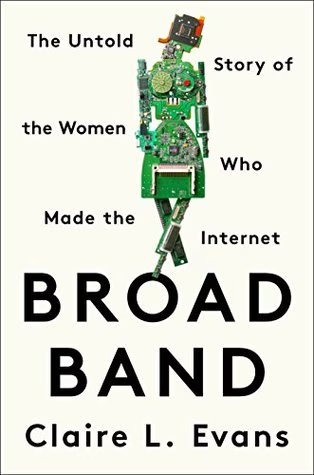A real kind of urgency and excitement in their writing. Superb.
A refreshing lesson in the history of the internet, primarily focused on the US (with a decent hat tip to Dame Wendy Hall) but really well written.
A recommendation by Jeremy Keith tipped this from my "to read" list into my brain and it was one of the easier non-fiction books I've read, purely down to Evens' writing style.
Highly recommend if you're working on the web or interested in modern computing history.
13 Highlight(s)
Without the human touch, current may run, but the signal stops.
she'd always assign the hardest jobs to the youngest and least experienced members of her team. She figured they didn't have the sense to know what was impossible.
In these early days, every computer was an island.
Betty Snyder thought of herself as a "cross between an architect and a construction engineer." Betty Jean Jennings was more blunt. "It was a son of a bitch to program," she wrote.
NASA was forced to destroy the Mariner I spacecraft, intended to probe the mysteries of Venus, because of a simple programming error.
The SDS-940 was freestanding, tethered only to a few terminals across the bay: more furniture than accessory.
To make successful links, in short, we need things worth linking.
At the height of the bubble, all that really mattered was to generate some healthy interest before an IPO.
A Web site ought never hope for permanence. Left untended, all bits eventually evaporate.
Which is why if you go to word.com today, you'll find a dictionary and not a magazine. The real estate is too valuable to host memorials.
while men generally see computers as a challenge—something to master and dominate—women see computers as tools, objects to be collaborated with.
As one female game designer put it, "We cannot expect women to excel in technology tomorrow if we don't encourage girls to have fun with technology today."
Indeed, the first generation of feminists to the Web understood that access was an equality issue,
